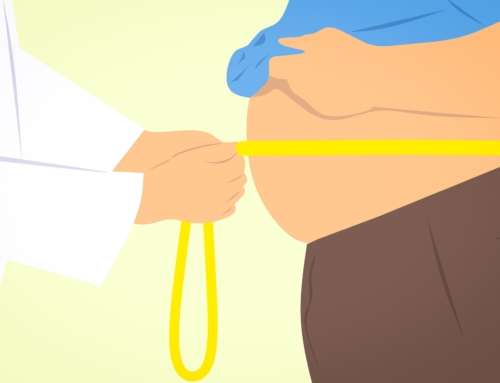Memory is such a concern as we age. Does losing words mean you are headed down a dementia path? No! Does one of your family members having dementia or Alzheimer’s mean you will get it? No, but you may be at higher risk. Many other factors play a roll in memory that are totally fixable.
Let’s take a look at some of the variables regarding your memory…. READ ON…
- Genetics: let’s get this one addressed first. Yes, there are some genetic markers that if you have it can increase your risk of Alzheimer’s.
- APO E 4: The Apo E gene has several different variants. We each have two variants and it can look like 2/2, 2/3, 2/4, 3/3, 3/4 or 4/4 . The 4 variant is considered higher risk for Alzhemier’s so when you have a 4/4 this one has the highest risk. While this marker is important there is so much more to consider. For example, the Cyrex Alzheimer’s assay doesn’t even test for the ApoE 4 allele because it is just a marker and really doesn’t show you what is going on in your brain at that very moment. The most important aspect of these markers is if you do have them then you need to bathe your genes in everything good and go down this checklist below even if you only have one 4. A lot of people really don’t want to know or do this type of testing so if you have a family history of dementia then just act like you have one of these and go down this list of things to think about and be proactive!
- Inflammation: inflammation in the brain is never a good thing and there are so many things that can cause this. Problem is once the symptoms really set in the damage may have already been done so finding the cause of this is key at the early stages. There are a few markers that can tip you off regarding inflammation including hsCRP, sedimentation rate, homocysteine, interleukin 6 and TNF alpha all indicate inflammatory processes but don’t tell you where they are coming from. In addition, you can have neuroinflammation (brain inflammation) with NORMAL markers!! Take a look at these below regardless…
- Mouth: you will be shocked that many of the organisms that can be linked to memory loss originate in the mouth!! I cannot stress enough how important our oral health is in all of our health issues. Root canals gone bad (even when you don’t know it) are some of the biggest culprits but you don’t have to have had a root canal to harbor these bad bugs. There is a special Oral DNA pathogen test that you can do to see if you have any bad bugs in your mouth and I recommend this simple swish and spit test highly!! Your dentist probably doesn’t even know about this test so give Dr. Debbie Ozment, DDS a call or our new biological dentist Katherine Dunnington, DDS both at Apollonia dental! For my patients, we offer this Oral DNA test, also!
- Infections: in addition to the bacteria above other infections can be key to evaluate including herpes (especially herpes 6), Lymes (regular lyme’s tests will miss this so you need a special test like Igenex labs) and mold. Even if you have no history of tick bite or living/working in a location with water damage you may still have Lymes or Mold! Herpes is an interesting subject since onset of COVID as I have seen many reactivated cases of herpes (Epstein barr aka mono) more than ever. Long haul COVID studies are showing evidence of brain inflammation so this is in the mix also.
- Nutrients: Low levels of nutrients are important to address and if severely low then understanding the underlying cause is even more important! Leaky gut caused by food sensitivities, bowel overgrowth, yeast and many other factors is critical to evaluate and address. Simple blood tests looking at B12 and D are important and making sure these levels are in optimal range (not just normal range) is key. B12 should be above 500 and D should be above 60. Levels of zinc and copper can also be important but be careful to not have too much zinc because this balance is important.
- Blood sugars: IMPORTANT!!! People who have high blood sugars are at high risk for dementia, no matter what. One author even suggested there should be an entirely separate class of dementia related to blood sugars. If you are following only your glucose level you are not getting the full picture. You need the following tests:
- Hemoglobin A1C – this is a 3 month average of your blood sugars. Ideally you want this number close to 5.0 even though the reference range says it is normal up to 5.7. If you are above 5.7 then you are pre-diabetic and above 6.4 you are a diabetic. Work on getting your sugars down!!
- Cardio Insulin resistance profile by Quest. This is probably one of my favorite tests because it can determine if you have insulin resistance long before the A1c starts to change!! If your fasting insulin and C peptide are high or high normal then you have some insulin dysregulation and need to be making changes to get this down!!
- Cholesterol: don’t forget about vascular dementia as a cause of memory issues. This is simply due to cholesterol plaque formation inside the brain. If you have a high LDL, high Lp(a, high triglycerides and/or high ApoB then you are at risk. Plaque doesn’t just form in the heart and carotids, it forms in all the vessels including the brain! Get a full panel with the markers I mentioned and address them!!
- Toxins: heavy metals, mold, environmental toxins are come into play here as well as alcohol, cigarettes, street drugs (yes marijuana fits in this category) and some prescription medications. These can all be toxic to our brains. There are many tests than can provide this information and then a protocol can be developed to eliminate these. Our water source is a big issue for toxins. Well water can not only harbor toxins but bacteria. City water is not always as pure as we would like it for example, historically Norman, OK has had an issue with chromium for many years and I’m sure many other towns/cities are in the same boat. Pesticides can be a culprit also so should be considered if this has been in heavy use in your area.
- Hormones: notice this one is at the bottom of the list. There is much debate on the importance of hormones and I can show you conflicting studies touting both ways. Estrogen is thought to have a protective role in dementia but is caught up in the controversy. At this point of this newsletter, I do believe that if you are showing signs of dementia or have a significant risk for Alzheimer’s then discussing taking bioidentical estrogen should be a conversation to have with your physician. Low testosterone is in the same category and may be helpful in men and women. Don’t forget other hormones like cortisol, thyroid, insulin all play a role. Of special note, when hormones fluctuate as they do in menopause or in andropause with men, you can initially have more trouble coming up with words/names etc but this usually improves after the hormones level off so just because you are experiencing a few brain zaps don’t panic. Pay attention and if these get worse or it is more excessive than an occasional name then start figuring out the other moving pieces besides the hormones!
- Foods: food sensitivities can actually play a role in neuroinflammation (brain inflammation). Concerns over gluten are significant even in non-celiac people. There have been entire books diving into this. David Perlmutter is a neurologist and I would recommend his books like the Grain Brain as well as Dr. William Davis, author of Wheat Belly, as they both evaluate the gluten connection. Doing an elimination diet may help you figure out if foods are triggers for you but keep in mind that you need to have that food out 100% for at least 6 months to see improvement in brain function. There was a study done on children with celiac where they scanned their brains and showed that one exposure of gluten could cause up to 6 months of brain inflammation! YIKES!
- Sleep apnea: I have written about sleep apnea many times before in different scenarios. Bottom line is if you have sleep apnea then you are not oxygenating correctly at night which means you are starving your brain and body of something vital. In addition, putting undo stress on your cortisol/adrenal system adding insult to injury. Get evaluated and more importantly TREAT IT!!
- History of head trauma: there is a reason the NFL is really trying to crack down on head to head impact due to the long term increased risk of dementia related to trauma. If you have had a traumatic brain injury hyperbaric oxygen may be helpful as I have seen several patients benefit on their cognitive scale using these therapies.
There are a plethora of supplements all claiming to help your memory. While many of them can be helpful, if you understand the underlying issue of what you are dealing with you can come up with a clearer game plan and save yourself gobs of supplements that don’t help at all.
To your health,
Laura









